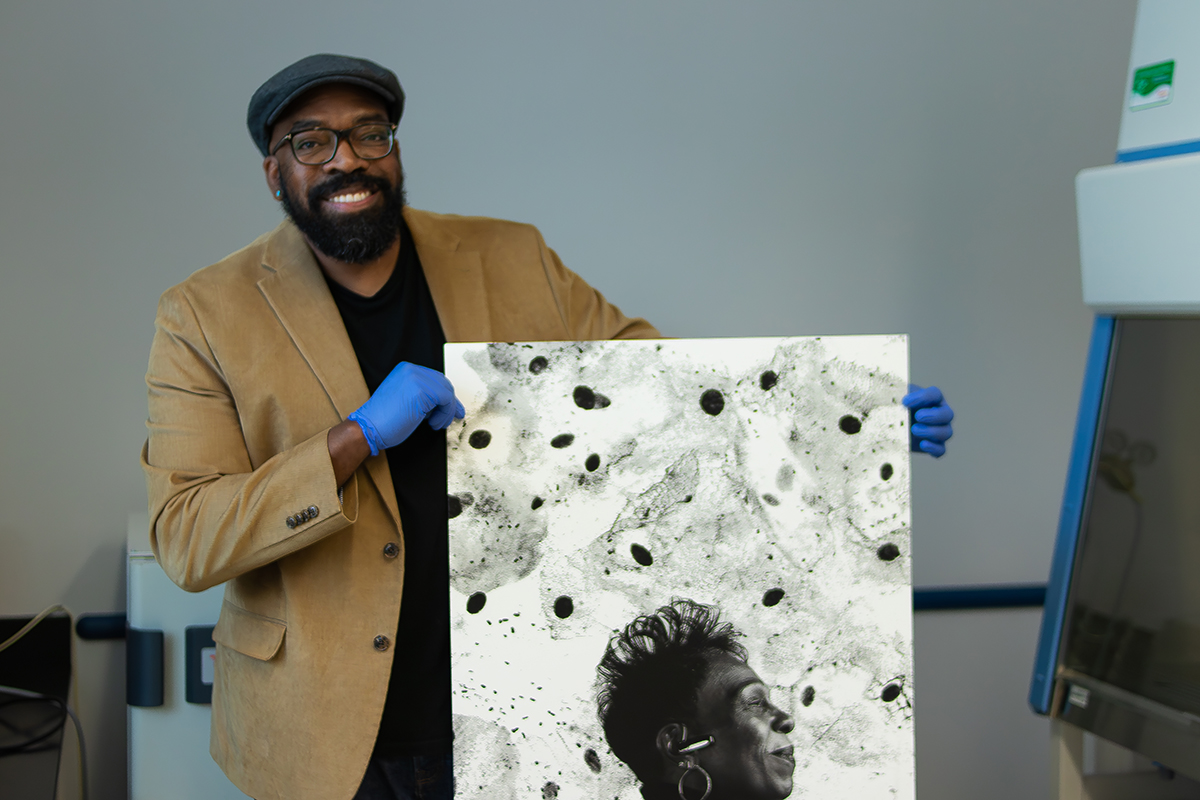 Professor Okunola Jeyifous poses with a "bioart" piece (Photo by Keeton Holder/DePaul University)
Professor Okunola Jeyifous poses with a "bioart" piece (Photo by Keeton Holder/DePaul University)
Memory in the human brain is all about connections. Even when we learn something as simple as someone’s name, a new connection forms between neurons in our brains. These connections, or synapses, can become stronger or weaker depending on the frequency of exposure to a particular event. This is why repetition is often key to long-term memory.
According to Okunola Jeyifous, an assistant professor of neuroscience, the cellular process of creating new pathways for long-term memory looks similar to the changes that occur in the brain during nicotine addiction. Long-term memory and alterations due to drug addiction are currently the two main areas of focus in
DePaul’s Jeyifous Lab.
“We are studying proteins and what happens between two single cells in a neural pathway,” Jeyifous says. “During nicotine use the drug essentially hijacks a protein trafficking pathway, making physical changes to your brain and causing deeper addiction. We hope our research can eventually help in the development of new therapies for both neurodegenerative diseases and smoking cessation agents.”
Though Jeyifous is still building out his lab on campus, he is not alone in his research. He currently has two undergraduate students working on his projects and plans to recruit several more for the 2024 summer sessions.
“Early exposure to research was fundamental for me. It can be crucial to building confidence and pursuing a career in science and research,” Jeyifous says. “Anyone who works in my lab is not merely doing tedious work or lab tasks. I try to give students an experience that will boost their enthusiasm. I want them to have an active role in driving our research and to feel their questions and voices are valued. That’s how the field of science is pushed forward – everyone has to feel like they can ask questions.”
In addition to his work with memory and addiction processes in the brain, Jeyifous also uses his lab to focus on the bioarts, fusing elements of neuroscience research with photography methods. In collaboration with faculty from the
Department of History of Art and Architecture, Jeyifous is developing a cross-disciplinary course that will examine unique cellular deficits or alterations in the brains of visual artists and how it impacts their artistic expression.
“I found the lens I use to study these images of microstructures in the brain to be similar to how I analyze a macro image, such as a landscape photo,” Jeyifous says. “I didn’t realize I was doing it at first, but it’s helped me come up with new ways to frame and examine data. It’s been exciting to be at DePaul where this kind of cross-disciplinary approach is encouraged and my plans, whatever they may be, are valued.”